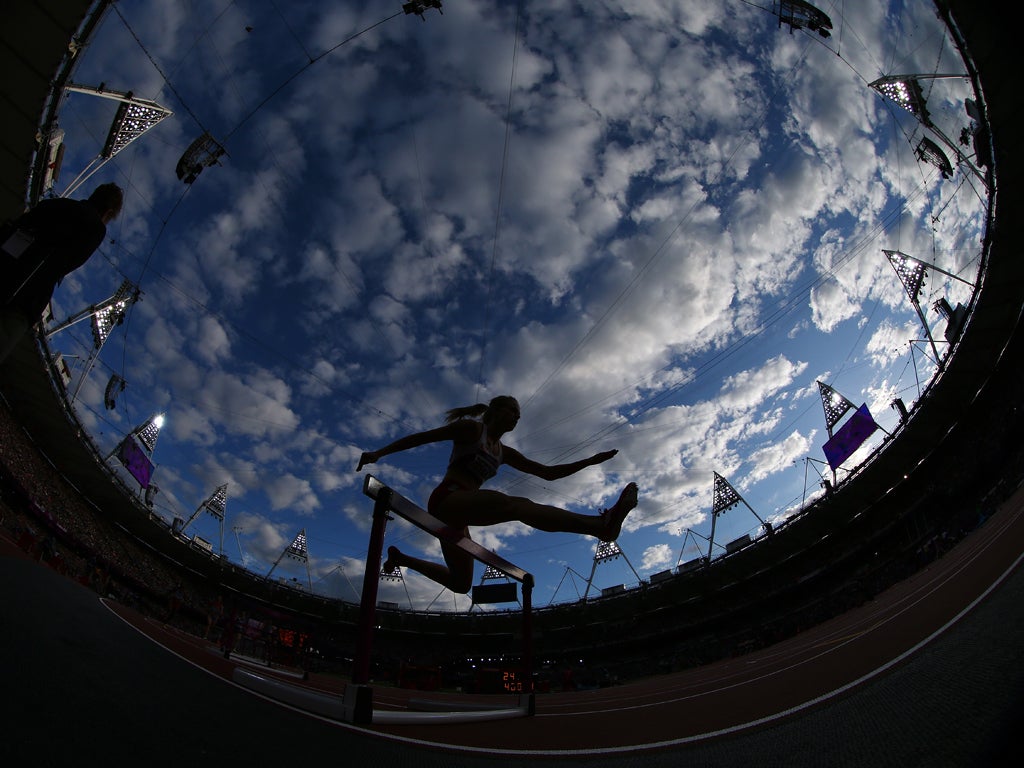Leading article: A chance for sport that must not be wasted
There is the possibility here for a huge upsurge, not just in sporting interest, but in actual participation, once the Games are over.

Your support helps us to tell the story
From reproductive rights to climate change to Big Tech, The Independent is on the ground when the story is developing. Whether it's investigating the financials of Elon Musk's pro-Trump PAC or producing our latest documentary, 'The A Word', which shines a light on the American women fighting for reproductive rights, we know how important it is to parse out the facts from the messaging.
At such a critical moment in US history, we need reporters on the ground. Your donation allows us to keep sending journalists to speak to both sides of the story.
The Independent is trusted by Americans across the entire political spectrum. And unlike many other quality news outlets, we choose not to lock Americans out of our reporting and analysis with paywalls. We believe quality journalism should be available to everyone, paid for by those who can afford it.
Your support makes all the difference.Only a little more than half way through the Olympics, it is already clear that Britain is in the unaccustomed position of enjoying a rip-roaring success. London, it turned out, was ready to host the Games. Team GB – winners, near-winners and losers alike – have done their country proud, not just in the number of medals garnered, but in the spirit in which they have accepted defeat.
As for the audiences, they have – as athletes, organisers and reporters from around the world have all testified – been something else. Even the fury about empty seats is proof of the enthusiasm that almost immediately gripped the nation. The Games motto is "Inspire a generation", and all the signs are that a generation – perhaps more than one – is indeed being inspired. This past weekend, with its cascade of gold medals, may go down as a vintage couple of days (if only British footballers could master the penalty shoot-out… ), but Olympic fever had already taken hold.
Anecdotal evidence is now piling up about young children espousing hitherto unimagined ambitions to emulate their new heroes. The success of female athletes, and not just the stylish victory of the Olympics poster-girl, Jessica Ennis, but the perseverance that brought Katherine Grainger her Olympic rowing gold, and the determination that spurred Victoria Pendleton to cycling victory after disqualification in her first event, have the potential to transform the canon of female role models. The showcase that British performances are providing for disciplines, such as men's gymnastics, will have a similar effect.
Inspiring a generation, however, must be only the start. London 2012 is generating waves of popular enthusiasm. The unticketed events are attracting a huge following, and digital television allows everyone to watch a far greater range of sports than ever before. There is the possibility here for a huge upsurge, not just in sporting interest, but in actual participation, once the Games are over.
And here it is hard to be quite so confident. The risk that, even if London was admirably, gloriously, ready, the country's sports establishment may not be. Will the Government, which has spoken of the hoped-for benefits to the country of the Olympics, in terms of national morale and public health, as well as commerce, be ready? Or the national sports organisations or the hundreds of local clubs? Is there the money? Are there the facilities? Is there the coaching expertise to help realise the dreams of those eager would-be Jessica Ennises, Chris Hoys and Mo Farahs, who may come forward? The chairman of the British Olympic Association, Lord Moynihan, was right when he called yesterday for a "step change" in government sport policy.
Some sports now have glitzy new venues, thanks to Olympic investment. Some – such as tennis – had to make do with existing, albeit world-standard, facilities. Given the financial constraints, that is understandable, but new indoor tennis courts in east London might have drawn in a whole new demographic of players in a way that the All England Club, even post-Olympics, probably will not.
And while the new venues will surely be great assets, Britain as a whole compares badly with most of our European neighbours in terms of public sports facilities, such as gyms and swimming pools. In recent years these amenities have been increasingly provided by private companies, which levy membership fees beyond the pockets of many. School playing fields have been sold off, and fewer pupils have regular sports provision at school.
London 2012 has already whetted a national appetite for sport beyond anything probably even the most optimistic organisers expected. But it is crucial that this unique opportunity should not be squandered by lack of facilities and expertise. Success in inspiring a generation must be matched by a determination to nurture and equip that generation, too.
Join our commenting forum
Join thought-provoking conversations, follow other Independent readers and see their replies
Comments